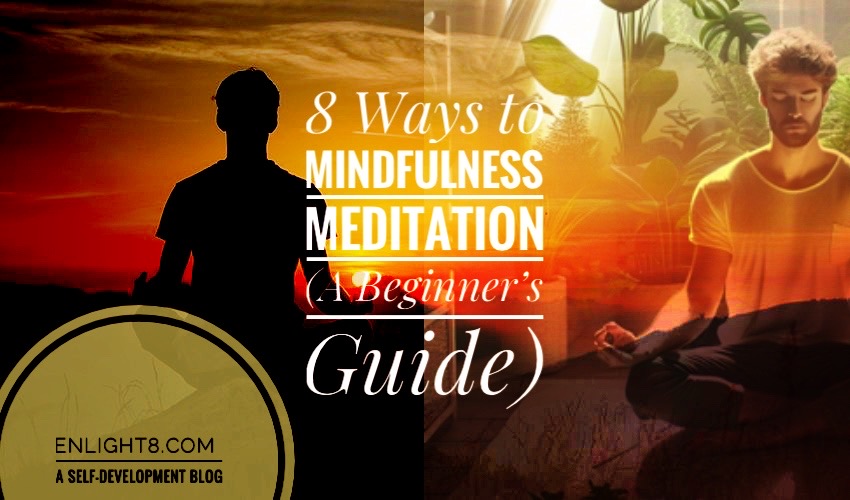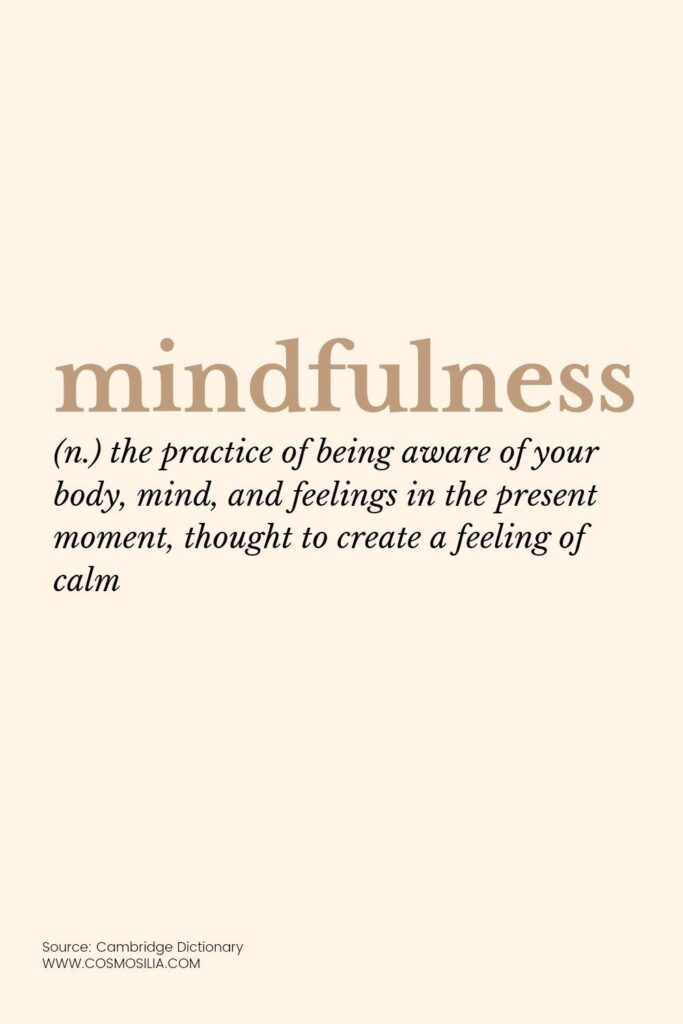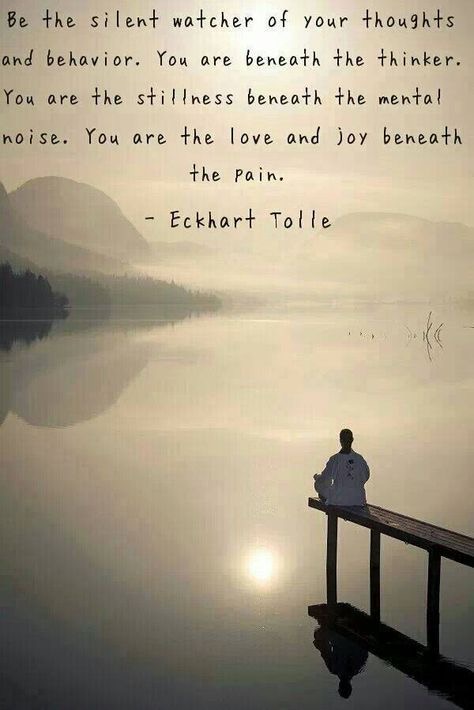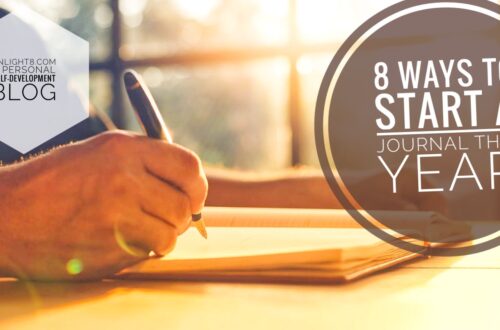
8 Ways to Mindfulness Meditation (A Beginner’s Guide)
What is Mindfulness Meditation?

Mindfulness meditation is a type of meditation that has its roots in ancient Indian tantras such as the ‘Vigyan Bhairava Tantra.’ Gautama Buddha practiced this type of meditation 2,500 years ago. Today, it has become part of the Buddhism spiritual practice. It is often referred to as ‘mindfulness meditation’ and has since become widespread, adopted by regular people like you and I, wanting to attain inner peace and a sense of self-awareness.
The popularity of mindfulness meditation has spread around the globe as researched findings show benefits from individuals who practice it. It has been shown to improve focus, concentration, precision, enhance the quality of communication and relationships, heighten intuition and clarity of thinking.
People who practice mindfulness meditation have been shown to have greater peace of mind and a sense of well-being. They are able to manage stress and are more resilient to life changes. In addition they have a greater sense of self-confidence, are more caring, and feel more authentic.
Of course these benefits are for all types of meditation, also most of these benefits are not just qualitative but also quantitative. Its been shown that people who meditate for a short period, such as 30 minutes for 8 weeks show measurable changes in brain gray matter density.

The benefits of meditation such as mindfulness meditation is tangible and I experienced those changes first hand. Before I started practicing meditation, I felt my mind cluttered, thoughts would stream through my head and felt I had no control over them. I found out about mindfulness meditation, and its simplicity appealed to me.
After practicing it sporadically two to three times per week for 15 minutes each, I experienced many changes. I was able to put my mind at ease quicker after each successive session, it took awhile for this to happen as my mind did tend to wander a lot in the very beginning.
After awhile, I was able to gain greater control over my mind and I was able to clear my thoughts quicker. In addition I experienced a sense of stillness and inner-knowing after I am done meditating.
The other major benefit I acquired from meditation is the ability to become mindful of your thoughts. You will come to the realization that if you observe your thoughts, and these include ‘self-talk’ in your mind, they are more than likely negative thoughts. It is this initial realization that will lead you to not only become the observer but also the curator of thoughts in your head. I was able to dismiss negative thoughts that come to me, and even thoughts that I observe does not yield the positive results I wanted.
“Peace is only a thought way.” – Jill Bolte Taylor
Below is the guide to mindfulness meditation. When you follow these steps, it may not be easy at first, it will require constant focus and concentration, both are something that early beginners will need to practice.
Mindfulness meditation is a practice of letting go and clearing the mind so you are able to focus on the now. It will require clearing the chatter in your mind and controlling your focus within your inner self.
How to Practice Mindfulness Meditation
1. Find a Place for Meditation

Get comfortable. Sit. Whether you sit in a lotus position on the ground, or just sitting regularly in your favorite chair does not matter as long as you are comfortable and you are able to keep your concentration and focus for period of time.
2. Proper Posture for Meditation
Keep your body straight, your head, neck, and back should also be straight.
Do not become rigid, but instead be flexible and comfortable. You can choose to keep your eyes open or closed. Mindfulness meditation can be done in either cases. I suggest you try both and see which you prefer.
3. Clear your mind.
Make an effort to set aside all thoughts, including your worries or your tasks for the day. This is the hardest part for beginners. You will find that there is a lot of mental chatter within you. You most concentrate to clear it all out. When your mind wanders, it is ok — return it back to focus. Do not think of the future — the ‘what will I do next’ thoughts or the past, the ‘what had I done yesterday’. Instead clear it all out.
4. Concentrate on Your Breathing

Now that your body and mind is at ease, concentrate on your breathing.
The air moving in and coming out of you. Be totally relaxed. By focusing on your breathing your mind will return to the present moment, the ‘now’-ness. This is what you are striving for, disregarding all thoughts aside from your breathing. Feel your body rise and fall as you breath. Listen to the sound of your breathing and the noise you make. Pay attention only to your breathing and nothing else, no other thoughts. Do this until the meditation sessions ends.
5. Acknowledge Distracting Thoughts
During this meditation session, thoughts and emotions may come forth in your mind.
Do not hold it back, let it come and as you breath out let it go. Let them come and go, re-focus to the present moment as by observing your breaths. You should be in a state of relaxation, and if you stay in the present moment, you will realize that negative emotions are products of your thoughts about past and future. Let them go.
6. Use Guided Meditations

There are many available free resources on YouTube for audio and video recordings you can use. There are alos many mobile apps with guided meditations, if you are unsure how to get started. Some popular apps that I have personally used are Headspace, Calm, and Insight Timer.
7. Practice Consistently
Incorporate meditation into your daily routine to cultivate a deeper sense of peace and mindfulness, even if you can only spare a few minutes each day. Start by setting aside a specific time—perhaps first thing in the morning or right before bed—when you can focus on your practice without distractions.
Consistency is crucial; the more regularly you meditate, the more you will enhance your overall well-being. Even short sessions can yield significant benefits, such as reduced stress, improved concentration, and greater emotional resilience. Over time, you’ll likely notice a positive shift in your mindset and an increased ability to stay present in the moment. Embrace the journey and give yourself grace as you build this beneficial habit.

8. Mindfulness Meditation Benefits.
As you become a regular practitioner of mindfulness meditation, you will begin to notice these benefits and changes in yourself.
- Concentration and Focus.
The ability to focus and concentrate will be enhanced, you will realize that as you clear the chatter in your head, you can begin to command your mind in a better way to pay attention to things more directly and in a deeper level. - Awareness.
You will become more in-tune with your own body and your own emotions. This perceptiveness of your own emotions and thoughts will mean you can have more control of your responses and not let it control you. The gap between stimulus and response will be widened for you, as your become more aware you can choose the most appropriate and positive course of action instead of haphazardly letting your emotions take control. - Loving-Kindness Meditation.
The most important benefit of mindfulness meditation is to get in touch with your heart. One of the oldest practices taught to the followers of Gautama Buddha himself is this loving-kindness meditation. The act of mindfulness meditation will bring you close to unconditional love for yourself and therefore for others. This will become apparent in your day-to-day life as meditation will bring you closer to making decisions with your heart and not with the mind, you will become more patient and also more kind to yourself and to others. - Improved Self-Esteem and Awareness.
As you focus on the present moment, it will lead to a better self-esteem. You will realize that your thoughts make your world, and as you are able to control the negative thoughts that is in your head, you are able to gain more confidence, your self-esteem will improve. You will begin to become more optimistic about yourself and about your current situation. You will know what you can and cannot control — as you become aware. This is one of the best benefits you can gain from meditation. I was often pessimistic about situations and myself — but as you gain awareness and self-confidence, you will become optimistic about you and your life. As you focus on the present moment, and live in your heart, you will become more grateful of every moment and everything you have.
Mindfulness meditation is a great beginner meditation, if you are looking for a practice of meditation to start. The gradual benefits and change in yourself will become apparent as you practice mindfulness meditation on a regular basis. I recommend you start daily. If you do not have time, find time — by tailoring the practice to your day-to-day routine. I find doing this meditation on my commute to work helps, I often close my eyes and do the steps as if I am taking a nap. Some people find doing this meditation after they work out, or at the end of the day after work. Either way, incorporate this meditation the best way you can — and you will find that it will greatly improve your life.
Recommended Reading:
Wherever You Go, There You Are
Check out this amazing book by the great Jon Kabat-Zinn
Untethered Soul
Michael A. Singer’s book is one of the most amazing starter-point for true sprituality, mindfulness, and meditation.




